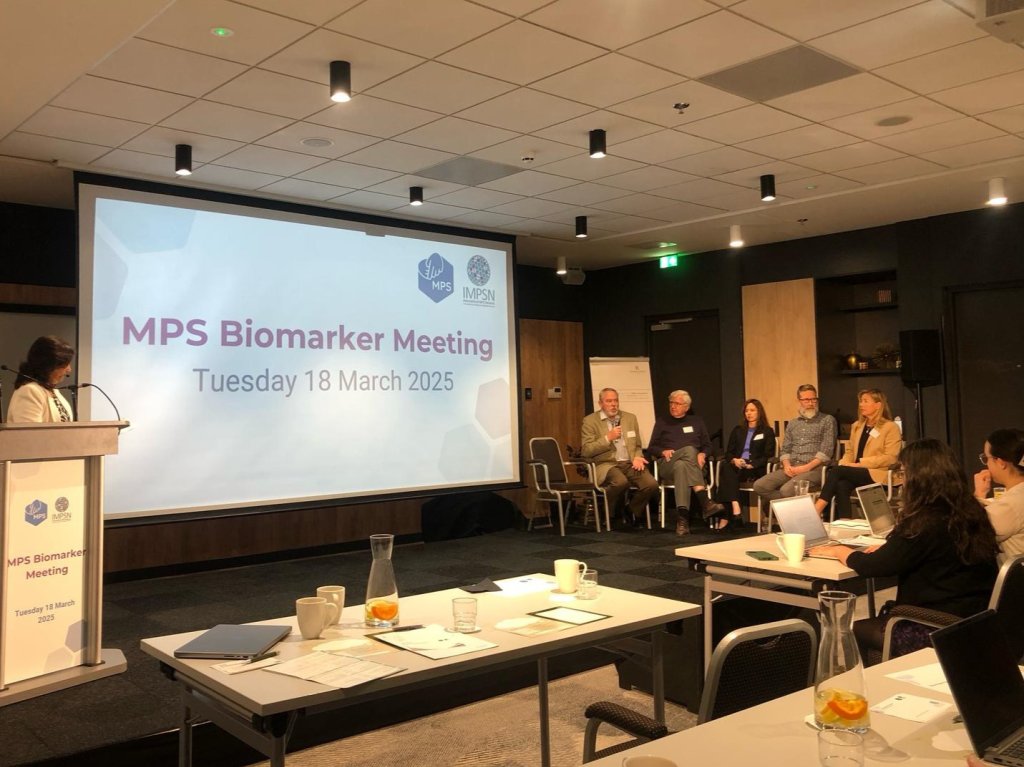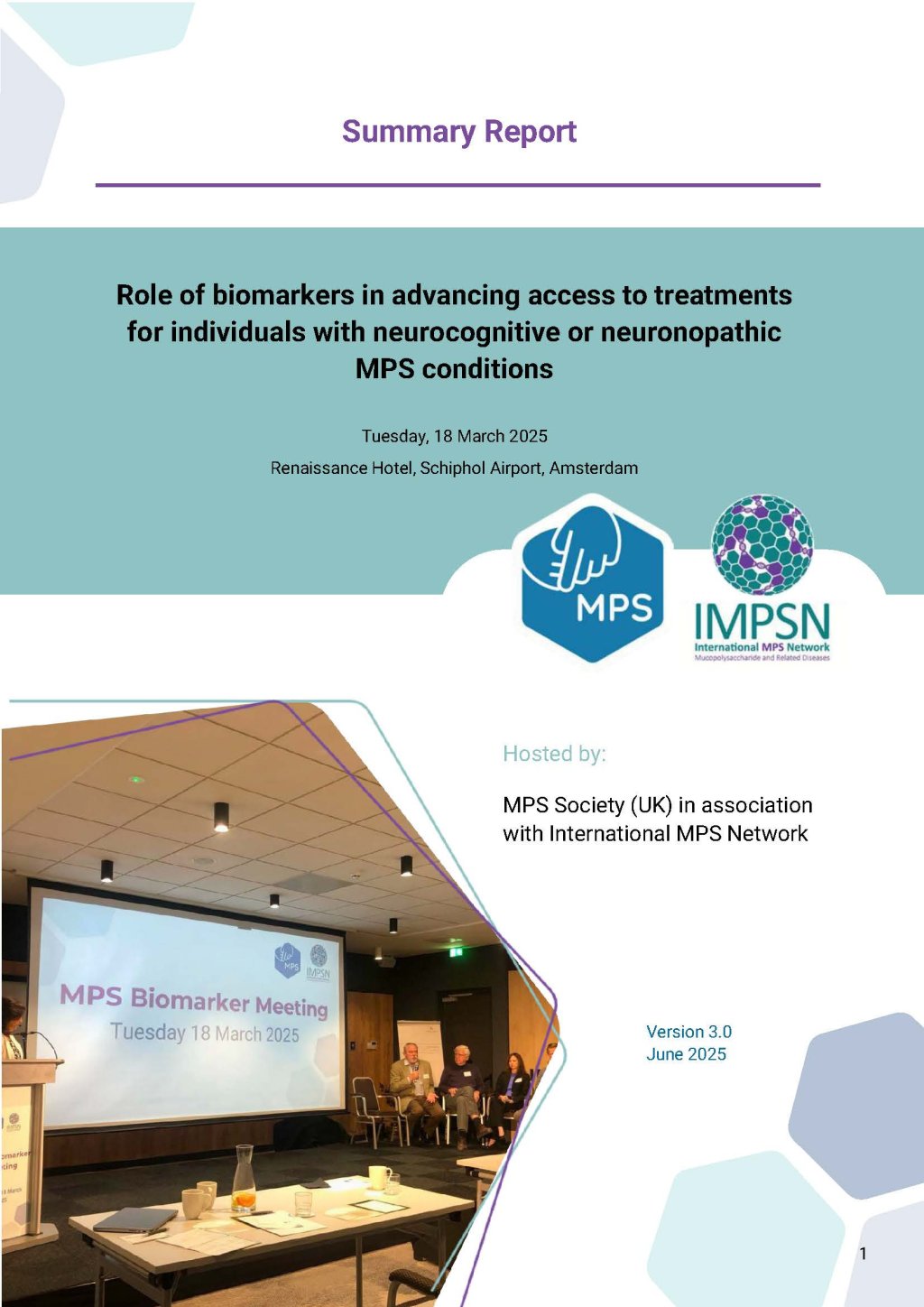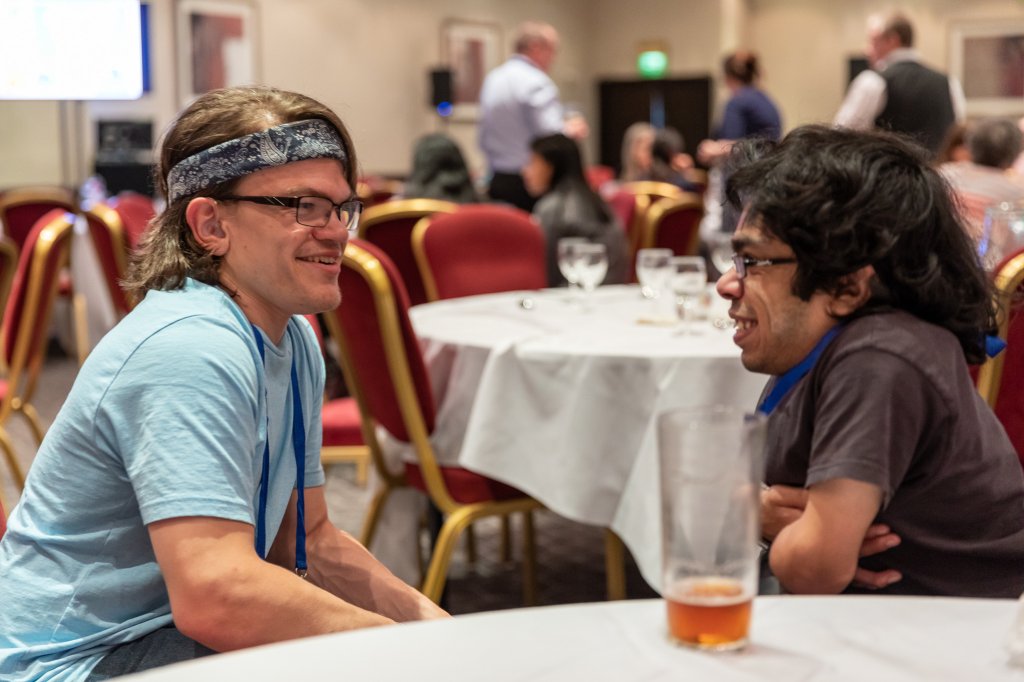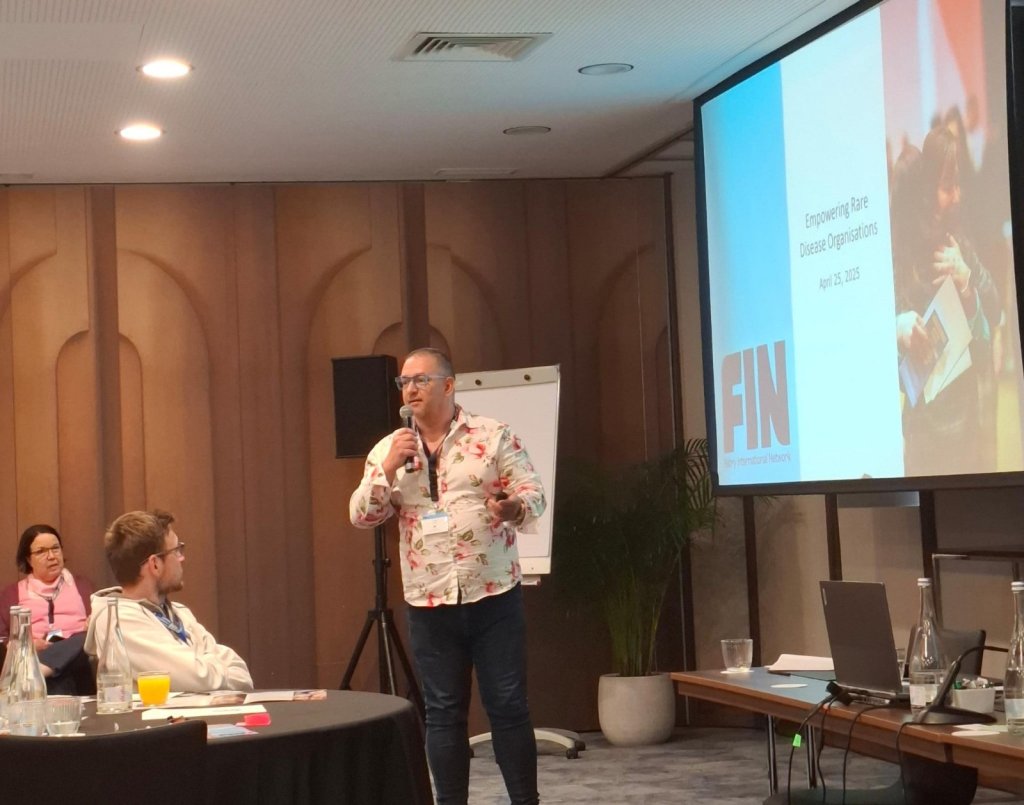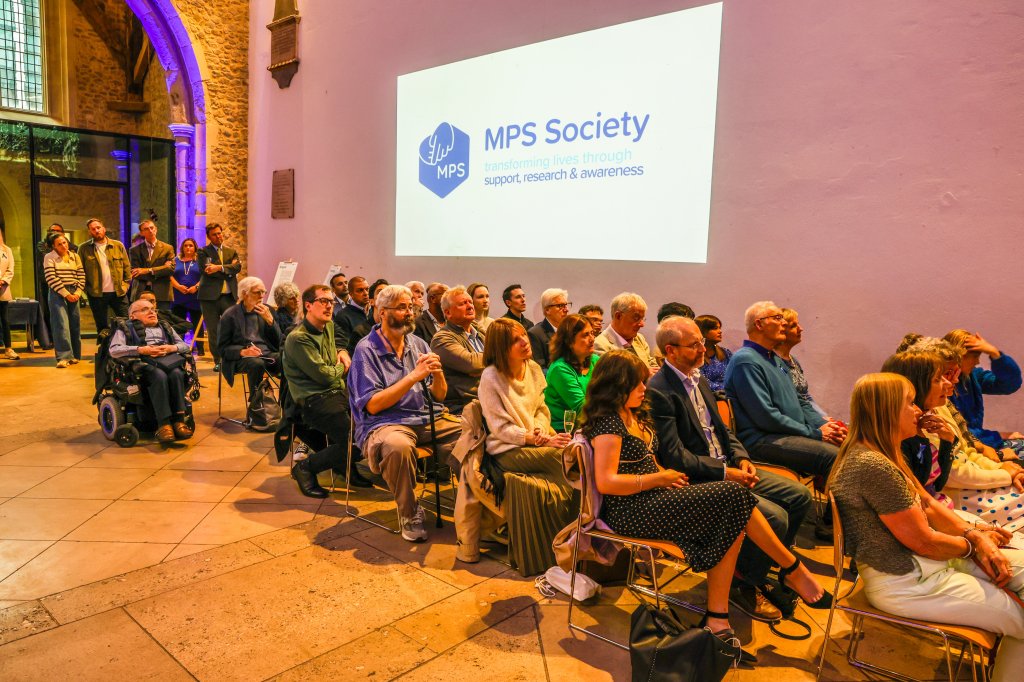For families affected by neuronopathic mucopolysaccharidoses (MPS), every second counts. These are serious conditions that get worse over time, especially in the brain. Getting treatment early, before symptoms start or get worse, can make a huge difference.
But too often, children are diagnosed too late to take part in clinical trials or access treatments that might help them. That’s why we are calling for urgent changes.
At a recent international meeting hosted by the International MPS Network (IMPSN) and the MPS Society UK, experts, doctors, researchers, companies and patient advocates came together with one goal:
To speed up access to treatment for children with MPS.
A big focus was on a substance called heparan sulfate (HS), found in the brain fluid (CSF) of people with certain types of MPS.
What is HS and why is it important?
HS builds up in the brain and causes damage. It’s not just a sign of disease, it actually helps drive it. When treatment lowers HS levels in the brain, it’s a sign that the treatment is working. That’s why we believe CSF HS should be used as a key marker in clinical trials and approvals as it tells us if a treatment is likely to help.
CSF HS is:
More accurate than other blood tests
A clearer picture of what’s happening in the brain
Likely to predict whether a treatment will make a real difference
Why early treatment is critical
Children do best when they get treated early, before symptoms get worse. Treating children before symptoms even start gives the best chance to stop or slow the disease.
But this only works if we catch it early through newborn screening. Sadly, screening isn’t widely available yet, partly because there aren’t enough approved treatments. This means some families don’t find out until it’s too late. That’s heart-breaking and unacceptable.
Even if a treatment can’t reverse the disease, stopping it from getting worse, referred to as stabilisation, can be life changing. Every bit of progress matters. But delays in research and access to treatment continue, not because treatments are unsafe, but because of red tape and slow approval systems.
What we’re asking for:
The IMPSN and MPS Society UK are calling on regulators, researchers, and decision-makers to:
Recognize HS in brain fluid as a key way to track disease and treatment success
Include HS in approval processes so safe and helpful treatments can be approved faster
Standardize how HS is measured, so results can be compared across studies and hospitals
Make HS part of clinical guidelines, so it’s routinely used in care and research
Invest in more research to improve testing and discover even better markers
Why we can’t wait.
Children with MPS don’t have time to waste. Every delay costs precious development, opportunities, and memories. With smarter science and faster action, we can give them the chance they deserve. Let’s act now—because every second matters!
